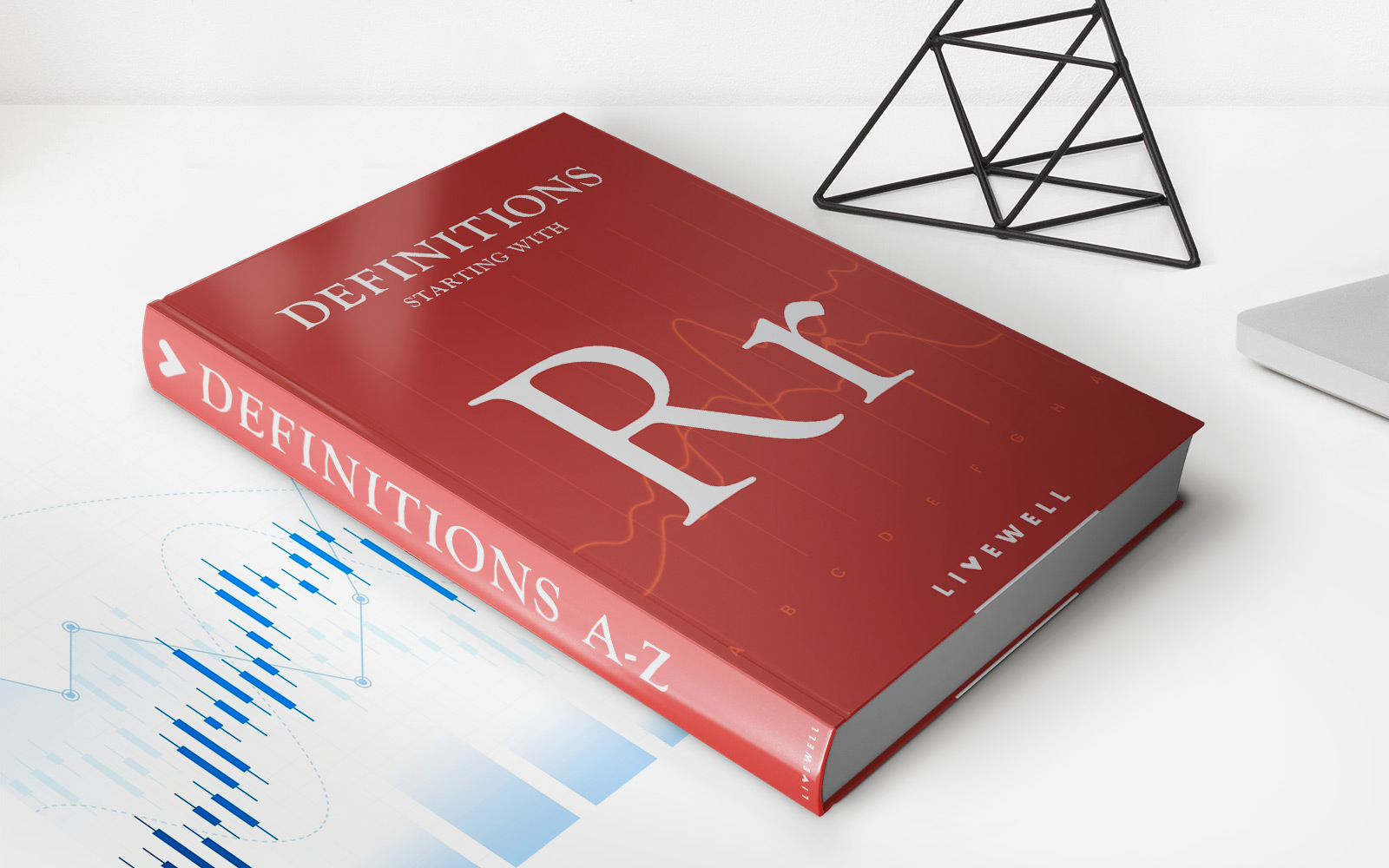

Finance
How Safe Are Certificates Of Deposit?
Modified: December 29, 2023
Find out how safe certificates of deposit are in the finance industry and make informed investment decisions for your financial future.
(Many of the links in this article redirect to a specific reviewed product. Your purchase of these products through affiliate links helps to generate commission for LiveWell, at no extra cost. Learn more)
Table of Contents
Introduction
When it comes to investing our hard-earned money, safety is often a top concern. We want to ensure that our funds are secure and that we won’t lose our principal investment. One option that many consider is investing in certificates of deposit (CDs).
Certificates of deposit are financial products offered by banks and credit unions that provide a fixed interest rate and term. They are considered a low-risk investment option, making them attractive to those who value stability and predictable returns. But just how safe are certificates of deposit?
In this article, we will dive into the various aspects of certificates of deposit to understand their safety and risk factors. We will explore the benefits and drawbacks of investing in CDs, as well as the government deposit insurance that safeguards investors’ funds. Additionally, we will discuss the potential risks associated with CDs and highlight important factors to consider before investing in them.
By the end of this article, you’ll have a comprehensive understanding of the safety of certificates of deposit and be able to make informed decisions regarding your investment strategy.
Understanding Certificates of Deposit
Certificates of deposit (CDs) are financial products offered by banks and credit unions that allow individuals to invest their money for a specific period of time and earn a fixed interest rate. They are a type of time deposit, meaning that the funds are locked in for a predetermined term, with penalties for early withdrawal.
CDs come in various terms, ranging from a few months to several years. The longer the term, the higher the interest rate typically offered. This makes CDs a popular choice for individuals who have a specific financial goal in mind for a set period, such as saving for a down payment on a home or funding a child’s education.
One key advantage of CDs is their predictability. Unlike other investment options, such as stocks or mutual funds, CDs offer a guaranteed return on investment. This can provide peace of mind for investors who prioritize stability over potentially higher returns.
Another aspect of CDs to consider is their liquidity. While CDs can be sold before their maturity date, there is usually a penalty for early withdrawal. This penalty can vary depending on the financial institution and the specific terms of the CD. Therefore, it’s important to carefully consider the term of the CD and your financial needs before committing to the investment.
CDs are typically offered at a fixed interest rate, meaning that the rate remains the same throughout the term of the investment. This can be advantageous in times of economic uncertainty or when interest rates are expected to decrease. By locking in a higher interest rate, investors can ensure stable returns even if other financial products offer lower yields.
Overall, understanding the basics of certificates of deposit is essential before diving into the safety and risk factors associated with these financial instruments. With their fixed interest rates and specific terms, CDs provide a conservative investment opportunity for those seeking stability and predictable returns.
Pros and Cons of Investing in Certificates of Deposit
Before deciding whether to invest in certificates of deposit (CDs), it’s important to evaluate the pros and cons of this investment option. While CDs offer certain benefits, they may not be suitable for everyone’s financial goals and circumstances. Let’s take a closer look at the advantages and disadvantages of investing in certificates of deposit.
Pros:
1. Stability and Predictability: One of the main advantages of CDs is their stability. Unlike stocks or other volatile investments, CDs offer fixed interest rates and guaranteed returns. This makes them an attractive option for risk-averse individuals who prioritize capital preservation.
2. Low Risk: CDs are considered a low-risk investment since they are insured by the government (up to certain limits). This provides an added layer of security for investors, especially during uncertain economic times.
3. Predictable Returns: With CDs, investors know exactly how much they will earn in interest over the term of the investment. This predictability can be particularly beneficial for individuals who have specific financial goals and need to plan their savings accordingly.
4. Diversification: CDs can be a valuable addition to a well-diversified investment portfolio. By allocating a portion of their assets to CDs, investors can balance their risk exposure and potentially offset higher-risk investments.
Cons:
1. Opportunity Cost: While CDs offer stability, they often yield lower returns compared to other investment options. This means that investors might miss out on potential higher earnings available through riskier investments, such as stocks or mutual funds.
2. Limited Liquidity: Unlike cash or other liquid assets, CDs have a fixed term, and early withdrawal may incur penalties. This lack of liquidity can be a drawback for individuals who may need access to their funds in case of emergencies or unexpected expenses.
3. Inflation Risk: CDs are vulnerable to the effects of inflation. If the interest rate earned on a CD does not keep pace with the rising cost of goods and services, the purchasing power of the investment may decrease over time.
4. Opportunity for Higher Returns: While stability is a key advantage of CDs, it also means missed opportunities for potentially higher returns. Investors with a longer time horizon and willingness to take on more risk may opt for investments with greater growth potential.
It’s important to weigh these pros and cons carefully and consider your own financial goals and risk tolerance before investing in certificates of deposit. While CDs can be a safe and reliable investment, they may not be the best choice for everyone. Understanding the advantages and disadvantages will help you make an informed decision about whether CDs align with your investment strategy.
Safety of Certificates of Deposit
When considering investing in certificates of deposit (CDs), the safety of your funds is likely a top concern. CDs are generally considered to be a safe investment option, but it’s important to understand the factors that contribute to their safety.
Government Deposit Insurance:
One key aspect that makes CDs a safe investment is the existence of government deposit insurance. In the United States, for example, the Federal Deposit Insurance Corporation (FDIC) insures deposits in participating banks up to $250,000 per depositor, per institution. This means that even if the bank fails, your deposit (including the principal and any accrued interest) up to the insurance limit will be protected.
It’s important to note that the FDIC insurance only applies to domestic banks and not to credit unions. Credit unions, however, have their own form of deposit insurance provided by the National Credit Union Administration (NCUA) up to the same $250,000 limit.
Financial Institution Stability:
Aside from government deposit insurance, the stability and reputation of the financial institution offering the CD also contribute to its safety. It’s essential to research and choose a reputable bank or credit union with a solid track record to minimize the risk of default.
Before investing, consider factors such as the institution’s financial health, ratings from credit agencies, and customer reviews. This information can give you a better understanding of the institution’s stability and its ability to honor its financial obligations.
Low Risk Profile:
CDs are considered to be low-risk investments because they offer a fixed interest rate and a predetermined maturity date. This reduces the risk of losses compared to more volatile investments like stocks or mutual funds.
By investing in CDs, you avoid the fluctuation in value that often comes with market volatility. As long as you hold the CD until maturity, you are guaranteed to receive the principal amount invested plus the agreed-upon interest rate.
Diversification:
Another aspect that contributes to the safety of CDs is their potential role in diversifying your investment portfolio. By allocating a portion of your assets to CDs, you can spread your risk and reduce your exposure to higher-risk investments.
Diversification can help protect your overall financial well-being by minimizing the impact of any single investment’s poor performance. This strategy allows you to balance potential losses with more stable returns from CDs, maintaining a degree of safety for your investment portfolio.
While the safety of certificates of deposit is generally high, it’s still essential to carefully evaluate the specific terms and conditions of each CD offering. Understand the interest rate, maturity date, penalties for early withdrawal, and any other relevant details to ensure that the CD aligns with your financial goals and risk tolerance.
Overall, certificates of deposit are considered safe investments due to government deposit insurance, the stability of the financial institutions offering them, their low-risk profile, and their potential for diversification. However, it’s important to conduct thorough research and consider your individual circumstances before investing.
Government Deposit Insurance
Government deposit insurance plays a crucial role in ensuring the safety of certificates of deposit (CDs) and providing peace of mind to investors. In the United States, the Federal Deposit Insurance Corporation (FDIC) is responsible for insuring deposits in participating banks up to $250,000 per depositor, per institution.
FDIC Insurance Coverage:
FDIC insurance covers a wide range of deposit accounts, including checking accounts, savings accounts, money market deposit accounts, and certificates of deposit. This means that if a bank fails, the FDIC will step in to protect depositors’ funds, up to the insurance limit.
It’s important to note that the $250,000 insurance limit applies per depositor and per institution. If you have multiple accounts in the same bank, such as a checking account and a CD, they are combined for insurance purposes. If the total balance in those accounts exceeds $250,000, only the insured limit will be protected by the FDIC.
FDIC Insurance Process:
FDIC insurance coverage is automatic and doesn’t require any action on the part of the depositor. When you open an account at an FDIC-insured bank, you are automatically covered by insurance. The process is seamless and transparent, providing a level of confidence for depositors.
In the event that a bank fails, the FDIC typically takes over the bank’s operations and arranges for the transfer of deposits to another FDIC-insured institution. This ensures that depositors have access to their funds without interruption. If necessary, the FDIC may also provide depositors with their insured funds directly.
Exclusions and Other Considerations:
While FDIC insurance provides significant protection for depositors, it’s important to understand the limitations and exclusions. It only applies to deposits in participating banks and does not cover investments in stocks, bonds, mutual funds, or other non-deposit financial products.
In addition, FDIC insurance does not protect against losses due to market fluctuations or poor investment performance. It solely focuses on ensuring the safety of depositors’ funds in the event of a bank failure.
It’s also worth noting that credit unions have a similar form of deposit insurance provided by the National Credit Union Administration (NCUA). The NCUA insurance also covers deposits up to $250,000 per depositor, per institution, for accounts at federally insured credit unions.
Public Confidence and Financial Stability:
The existence of government deposit insurance, such as the FDIC, plays a vital role in maintaining public confidence in the banking system. Knowing that their deposits are protected up to a certain amount gives depositors assurance and discourages bank runs during times of financial stress.
The government deposit insurance system contributes to financial stability by safeguarding the integrity of banks and credit unions. It helps ensure that individuals continue to have trust in the safety of their deposits, promoting economic stability and confidence in the overall financial system.
Overall, government deposit insurance, such as the FDIC in the United States, is a critical component of the safety of certificates of deposit. Its existence provides a safety net for depositors, protects their funds in the event of a bank failure, and maintains public confidence in the banking system.
Risks Associated with Certificates of Deposit
While certificates of deposit (CDs) are generally considered to be safe investments, it’s important to understand that they do come with certain risks. Being aware of these risks allows investors to make informed decisions and manage their expectations. Let’s explore some of the risks associated with CDs:
Interest Rate Risk:
CDs are fixed-income investments with a predetermined interest rate. This means that if interest rates rise after you purchase a CD, you may miss out on the opportunity to earn a higher return. Conversely, if interest rates decline, your CD can provide a higher yield than other investments. It’s important to consider the prevailing interest rate environment and your own expectations before committing to a CD investment.
Liquidity Risk:
CDs are time deposits, meaning that your invested funds are locked in for a specific period, known as the term of the CD. While some CDs offer the option for early withdrawal, it usually comes with penalties or forfeiting a portion of the earned interest. If you anticipate needing cash in the near future or want the flexibility to access your funds quickly, CDs may not be the most suitable investment choice.
Inflation Risk:
CDs typically provide a fixed interest rate, meaning that the rate remains the same over the term of the investment. However, inflation erodes the purchasing power of money over time. If the rate of inflation exceeds the interest rate earned on a CD, the real value of your investment may decrease. It’s important to consider the potential impact of inflation on the returns of your CD and how it aligns with your long-term financial goals.
Opportunity Cost:
While CDs offer stability and fixed returns, they generally come with lower yields compared to other investment options, such as stocks or mutual funds. By committing your funds to a CD, you may miss out on the potential for higher returns in riskier but more lucrative investments. It’s important to carefully assess your risk tolerance, investment goals, and the potential opportunity cost before deciding to invest in a CD.
Default Risk:
Although CDs are generally considered low-risk investments, there is still the inherent risk of a bank or credit union defaulting on its obligations. While government deposit insurance exists to protect depositors, it may not cover the entire amount if the amount exceeds the insurance limit or if not all of your funds are in FDIC or NCUA-insured institutions. Carefully research and choose reputable financial institutions with strong financial health and ratings to mitigate this risk.
Understanding the risks associated with certificates of deposit is crucial for investors. By assessing these risks, considering your financial objectives and risk tolerance, and conducting thorough research, you can make informed decisions about whether CDs align with your investment strategy and financial goals.
Factors to Consider Before Investing in Certificates of Deposit
Before investing in certificates of deposit (CDs), it’s important to carefully assess various factors to ensure that they align with your financial goals and circumstances. Here are some key factors to consider:
Investment Term:
CDs come with a predetermined term, typically ranging from a few months to several years. It’s important to consider your investment timeframe and financial goals before choosing a CD. If you have short-term goals, a shorter-term CD may be appropriate. On the other hand, if you have longer-term goals and don’t need immediate access to your funds, a CD with a longer term may offer a higher interest rate.
Interest Rates:
The interest rate offered on a CD will directly impact the yield and potential returns on your investment. Research and compare the rates offered by different financial institutions to ensure you are getting a competitive rate. Keep in mind that longer-term CDs typically offer higher interest rates, but make sure the higher rate justifies tying up your funds for a longer period.
Penalties for Early Withdrawal:
While CDs are time deposits, there may be circumstances where you need to access your funds before the maturity date. It’s important to understand the penalties associated with early withdrawal. Some CDs may impose a penalty, typically in the form of forfeiting a portion of the earned interest. Consider your liquidity needs and the possibility of needing to access your funds before the CD reaches maturity.
Financial Institution Stability:
The stability and credibility of the financial institution offering the CD are crucial factors to consider. Research the institution’s financial health, ratings from credit agencies, and customer reviews. Choose a reputable institution that is well-established and has a solid track record for financial stability and customer satisfaction.
Inflation Protection:
Take into account the potential impact of inflation on the returns of your CD. Since CDs offer fixed interest rates, if the rate of inflation surpasses the interest rate earned, the real value of your investment may decrease. Consider whether inflation protection or higher-yielding investments might be more suitable for your long-term financial objectives.
Diversification:
Consider how a CD fits into your overall investment portfolio. CDs can offer stability and balance to a diversified portfolio, particularly for risk-averse investors. By allocating a portion of your assets to CDs, you can mitigate risk and maintain a more balanced investment strategy.
Personal Financial Goals and Risk Tolerance:
Above all, assess your own financial goals and risk tolerance. Consider what you aim to achieve with your investments, whether it’s short-term savings or long-term growth. Evaluate how a CD aligns with your risk tolerance and whether its fixed returns meet your expectations and financial objectives.
By carefully evaluating these factors, you can make an informed decision about whether investing in certificates of deposit aligns with your investment strategy and financial goals. Remember to choose financial institutions wisely, consider the terms and conditions, and ensure that a CD complements your overall investment portfolio.
Conclusion
Certificates of deposit (CDs) offer a safe and reliable investment option for individuals seeking stability and predictable returns. With their fixed interest rates and specific terms, CDs provide stability, low risk, and government deposit insurance for added security.
However, it’s essential to weigh the pros and cons before investing in CDs. While they offer stability, there is the opportunity cost of potentially higher returns from riskier investments. CDs also come with liquidity limitations and are vulnerable to inflation risk.
To make an informed decision about investing in CDs, consider the following key points:
– Government deposit insurance, such as FDIC or NCUA coverage, provides protection for CD investors up to certain limits.
– Evaluate the stability, reputation, and ratings of the financial institution offering the CD.
– Understand the specific terms, including interest rates, penalties for early withdrawal, and the investment term.
– Consider the potential impact of inflation on the real value of your investment.
– Assess your risk tolerance and investment goals to determine if a CD aligns with your financial strategy.
– Take into account your liquidity needs and the potential opportunity cost of committing funds to a CD.
Overall, certificates of deposit can be valuable components of a well-diversified investment portfolio, providing stability and predictable returns. They are particularly suitable for individuals with short-term savings goals or those seeking to balance risk in their investment strategy.
Remember to thoroughly research and compare different CDs, and choose reputable financial institutions. By carefully considering these factors, you can confidently invest in certificates of deposit and match them with your financial objectives, risk tolerance, and overall investment strategy.














